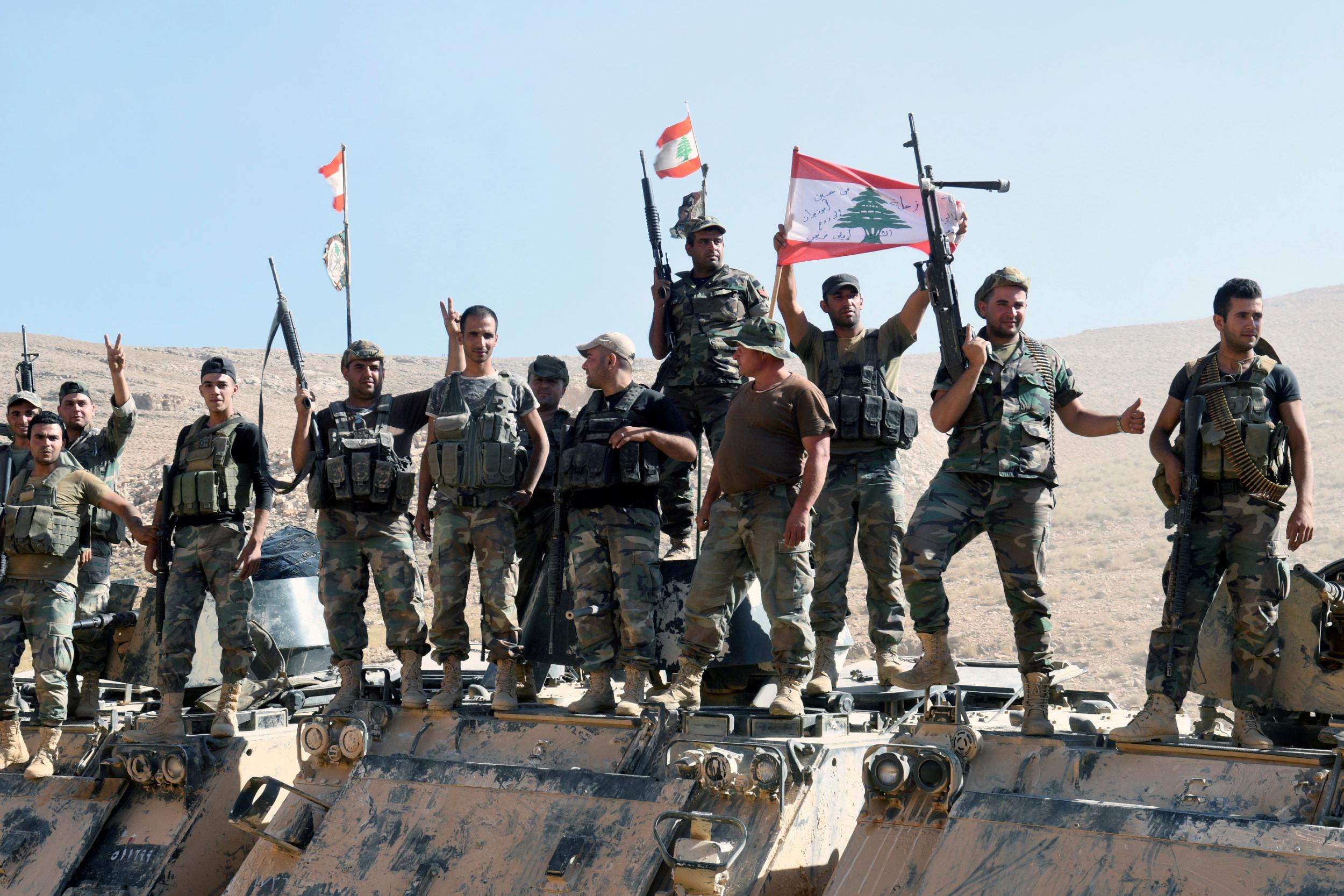Lebanon declares ‘victory’ over Isis but angers US by letting militants flee to Syria
Convoy carrying hundreds of jihadist fighters and their families stranded in Assad regime territory after US air strike blows up bridge on evacuation route

After a week-long campaign to oust Isis from its territory on the Lebanon-Syria border, Lebanese President Michel Aoun has declared the country has been victorious over the militant group - but angry Iraqi and US coalition officials have pointed out that in fact, the jihadists have just been bussed over the border to become someone else’s problem.
In their first ever publicly acknowledged evacuation deal, rather than fight to the death in the pockets in the border mountains still under Isis control, fighters agreed to a Hezbollah-brokered evacuation plan which saw 300 men and their families bussed over the border back into Syria on Monday.
The decision was met with outrage in Iraq and by the US-led international coalition against Isis, which, along with the Syrian army, is fighting for control of the militants’ last areas of control in northeast Syria and on the border with Iraq.
“Irreconcilable #ISIS terrorists should be killed on the battlefield, not bused across #Syria to the Iraqi border without #Iraq's consent,” Brett McGurk, the US presidential envoy to the anti-Isis coalition, said on Twitter.
Iraqi prime minister Haider al-Abadi called the deal an “insult to the Iraqi people”. Thousands of Iraqi soldiers have died in the fight to destroy the caliphate since it began in earnest in October 2016.
The US took the remarkable step of bombing a bridge on the route the evacuation buses were taking to Isis-held Deir Ezzor on Wednesday, effectively stranding the 300 fighters and around 300 women and children in hostile Syrian-regime controlled territory overnight. Coalition jets also struck a convoy making its way to meet the evacuees from Isis territory.
A second attempt to reach Deir Ezzor was made on Thursday, but by the evening a US coalition spokesperson said that the convoy had instead moved deeper into an area controlled by Syrian President Bashar al-Assad’s forces.
The coalition made clear it might strike again if the fighters were separated from the women and children in order to stop them reinforcing Isis’ strengths in east Syria.
“We will continue to monitor the convoys in real time... and take advantage of known Isis (fighters) in open areas away from civilians and strike them,” coalition spokesperson Colonel Ryan Dillon said in a statement.
It is not clear where the convoy is headed now, although a Syrian government commander said on Thursday that the fighters could be allowed to progress again after an exchange of dead combatants and prisoners.
The impasse shows just how complicated Syria’s multi-sided six-year-long war has become.
In Lebanon, Hezbollah-aligned al Akhbar reported that some Isis leaders in Syria did not want members of the group who had surrendered territory to be welcomed back into the so-called caliphate, and the militants should have fought to the death instead.
In a speech on Thursday evening, Hezbollah leader Hassan Nasrallah defended the deal, saying he had met with President Assad in Damascus for his help in guaranteeing the ceasefire and the agreed return of the remains of nine Lebanese Armed Forces (LAF) soldiers captured in 2014.
The deal was implicitly endorsed by the Lebanese government, although there is no official coordination between the Shia militant group and the LAF.
Two Hezbollah offensives against other Sunni militant groups in Lebanon’s north earlier this year proved successful.
Hezbollah, an important Syrian government ally, has maintained a strong presence in the parts of Syria near the border with Lebanon for several years, helping Assad recapture several areas from Sunni rebels.
Join our commenting forum
Join thought-provoking conversations, follow other Independent readers and see their replies
Comments